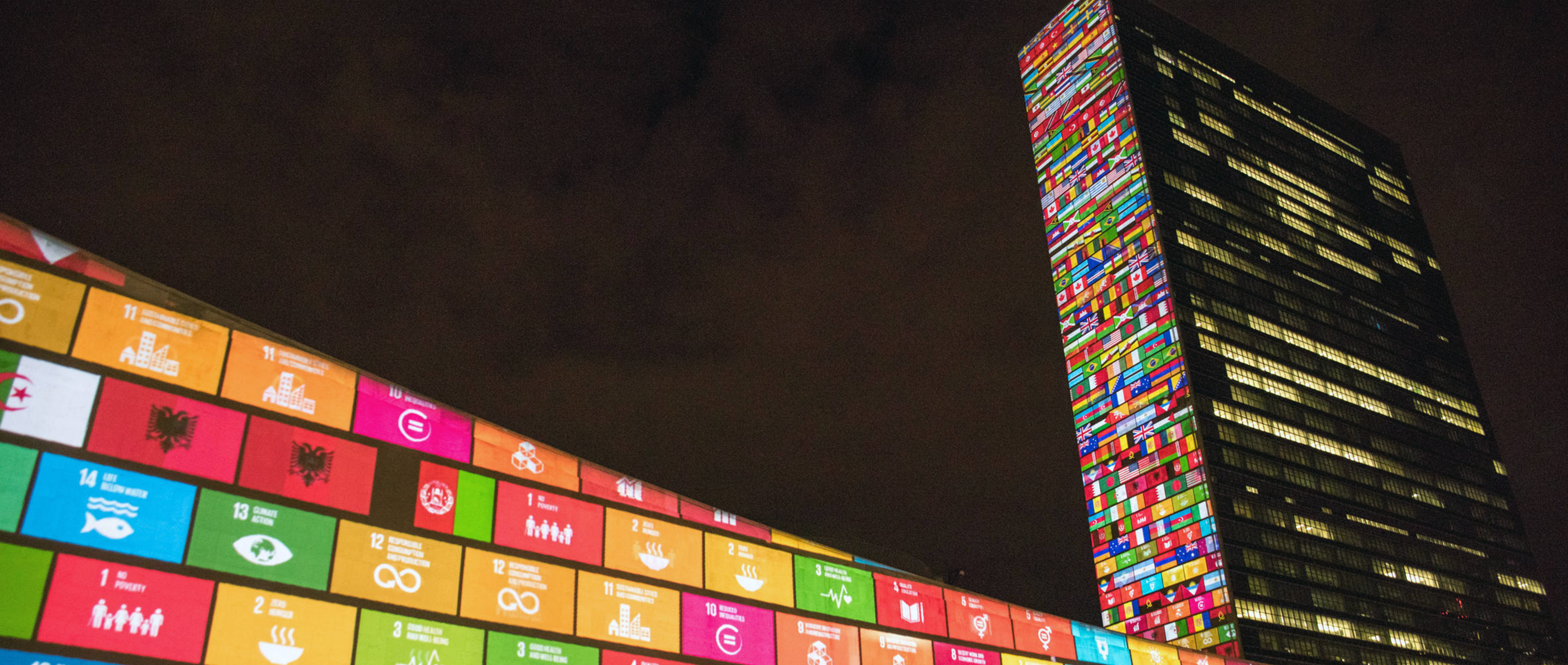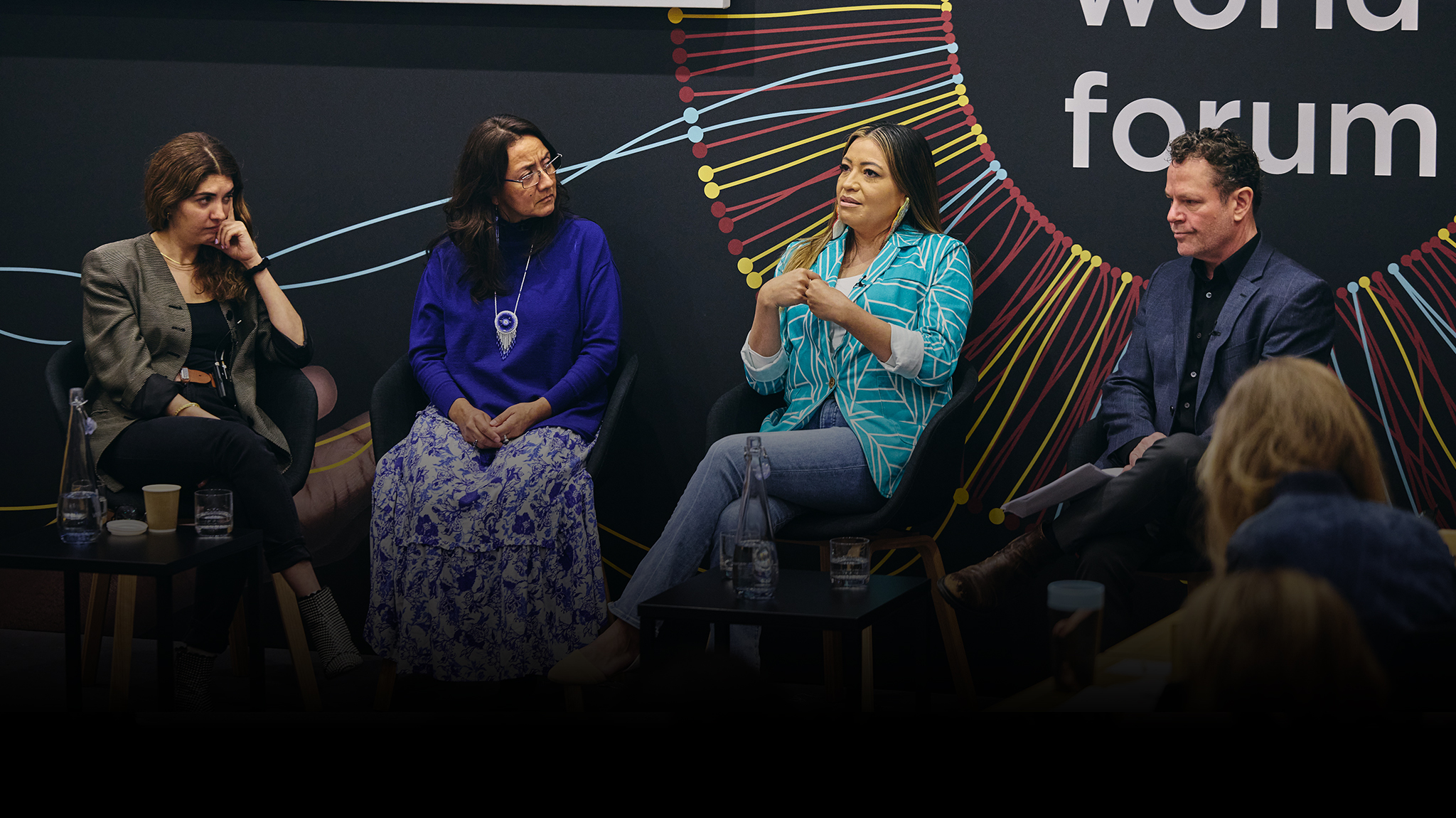UNGA Week Calls to Action Span Climate, Health, Education
Climate and health took center stage at the 74th session of the UN General Assembly last week in New York—the annual gathering of nearly 200 world leaders with a constellation of parallel events organized around progress against the Sustainable Development Goals. A Climate Summit and a high-level meeting on Universal Health Coverage opened the week—with leaders voting to adopt the most comprehensive set of health commitments ever. Skoll Awardees and partners converged on UNGA week to push for multi-sector collaboration to reach Global Goals, resulting in many urgent calls to action. Here are five worth underscoring.
Ceres rolled out the Global Investor Statement to Governments on Climate Change. In the statement, a record 515 institutional investors with $35 trillion in assets urged world governments to phase out thermal coal power worldwide, put a price on carbon pollution, end government subsidies for fossil fuels, and update and strengthen nationally-determined contributions by 2020.
With #ClimateWeekNYC underway, a record number of investors are calling for climate leadership from companies and policymakers. ““The need for private and public sector leadership on climate change has never been greater,” says Ceres’ @CleanPowerSue. https://t.co/dEIMxoXxLn
— Ceres (@CeresNews) September 24, 2019
Healthcare Without Harm released its landmark study on the global climate footprint of health care and urged its Health Care Climate Challenge to mobilize health care institutions around the globe to protect public health from climate change. Hospitals, health systems, and health care facilities are invited to sign the Health Care Climate Challenge pledge and join the climate-smart health care movement.
📣 NEW REPORT: Health Care’s Climate Footprint 📣
➡️Health care’s footprint = 4.4% of global net emissions = annual GHGs of 514 #coal-fired power plants
➡️If #healthcare were a country, it’d be the 5th largest emitter on the planetRead: https://t.co/WwlJWkR6RG pic.twitter.com/OkuIaBN65p
— HCWH – Global (@HCWHGlobal) September 10, 2019
Community Health Impact Coalition influenced world leaders to adopt a high-level United Nations Political Declaration on universal health coverage (UHC), the most comprehensive set of health commitments ever adopted at this level. The declaration is a remarkable milestone for The Community Health Impact Coalition, a collaboration between the field’s most innovative implementers, including Last Mile Health, Living Goods, Medic Mobile, Partners in Health, and VillageReach.
The Community Health Impact Coalition is at #HLMUHC #UNGA today!
Colleagues from @VillageReach, @Living_Goods, @MusoHealth, and @integrateglobal ready to push for quality community health delivery as the norm #HealthForAll #UHC #CHW pic.twitter.com/0y1ty64ELC
— Community Health Impact Coalition (@chw_impact) September 23, 2019
Today, 193 countries will adopt the first declaration on #UHC. This is a critical step to realize #HealthForAll, but we can’t do this without community health workers like Rosaline & the movement that supports her to go as far as it takes. #UNGA2019 https://t.co/VSasu9LSpB
— Last Mile Health (@lastmilehealth) September 23, 2019
Educate Girls: The World Bank says that girls’ education is one of the best investments that a country can make. It helps to positively impact nine of the 17 #SDGs. Safeena Hussain has a plan to enroll a staggering 1.6 million girls in school over the next five years.
Watch @safeenahusain‘s impassioned @TEDTalks on why educating girls is an answer to the world’s most pressing problems and how she plans to enroll more than a million out of school girls! @TheAudaciousPrj #UNGA
Watch now – https://t.co/CWA8aum1EJ pic.twitter.com/cXoSc1RPNQ— Educate Girls (@educate_girls) September 23, 2019
Water and Sanitation for the Urban Poor urged for building climate resilient cities through improved water and sanitation. Water scarcity in cities, driven in part by rapid urbanization, is on the increase, and climate change is making the problem worse. The World Bank predicts that by 2050, water availability in cities could be two-thirds what it was in 2015.
Water scarcity in cities, driven in part by rapid urbanisation is on the increase, and #climatechange is making the problem worse.
Building resilient societies with improved water & sanitation has never been more urgent. Read more: https://t.co/T0Sq5zpLOs #ClimateAction #UNGA pic.twitter.com/NpQMaA6dEC
— WSUP (@WSUPUK) September 23, 2019
Please help these Skoll Awardees and partners spread the word about these commitments.
Want more stories of large-scale change on the world’s most pressing problems? Sign up for Skoll Foundation’s monthly newsletter.



